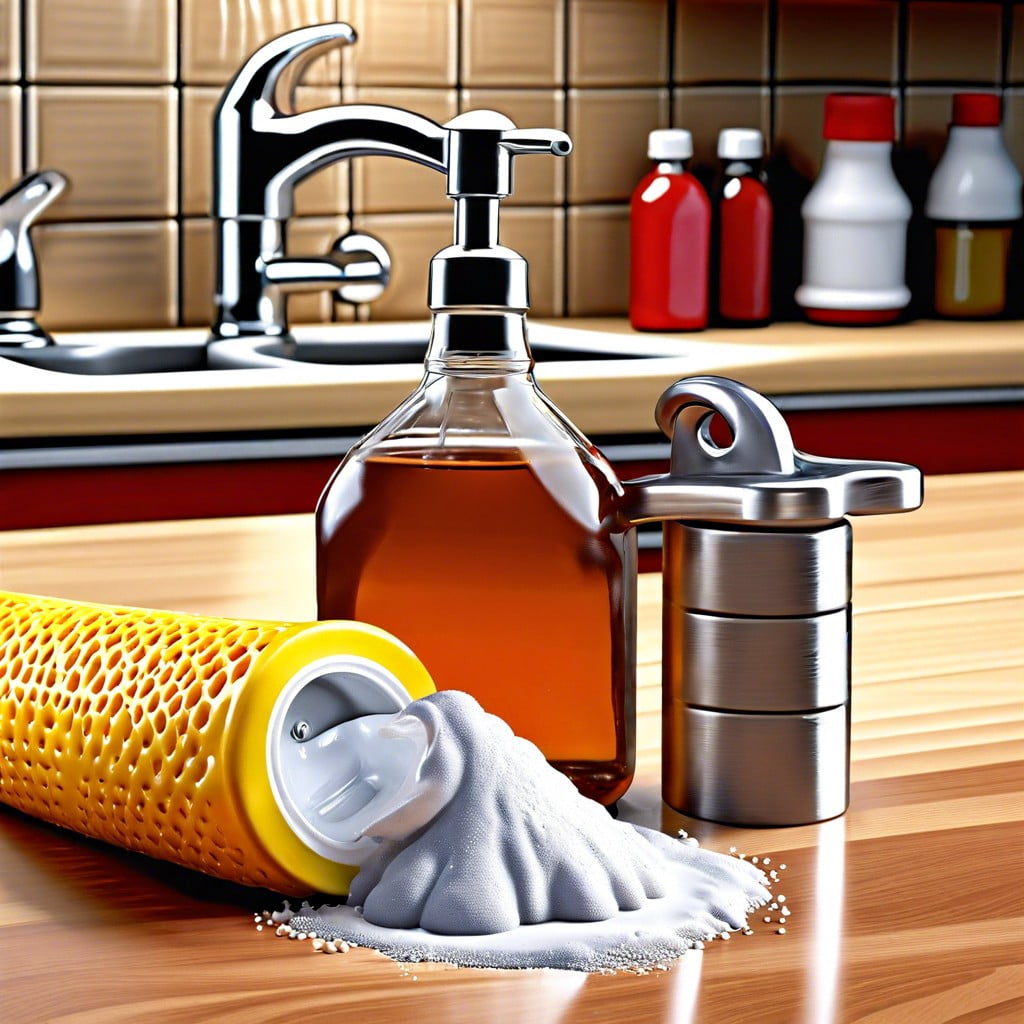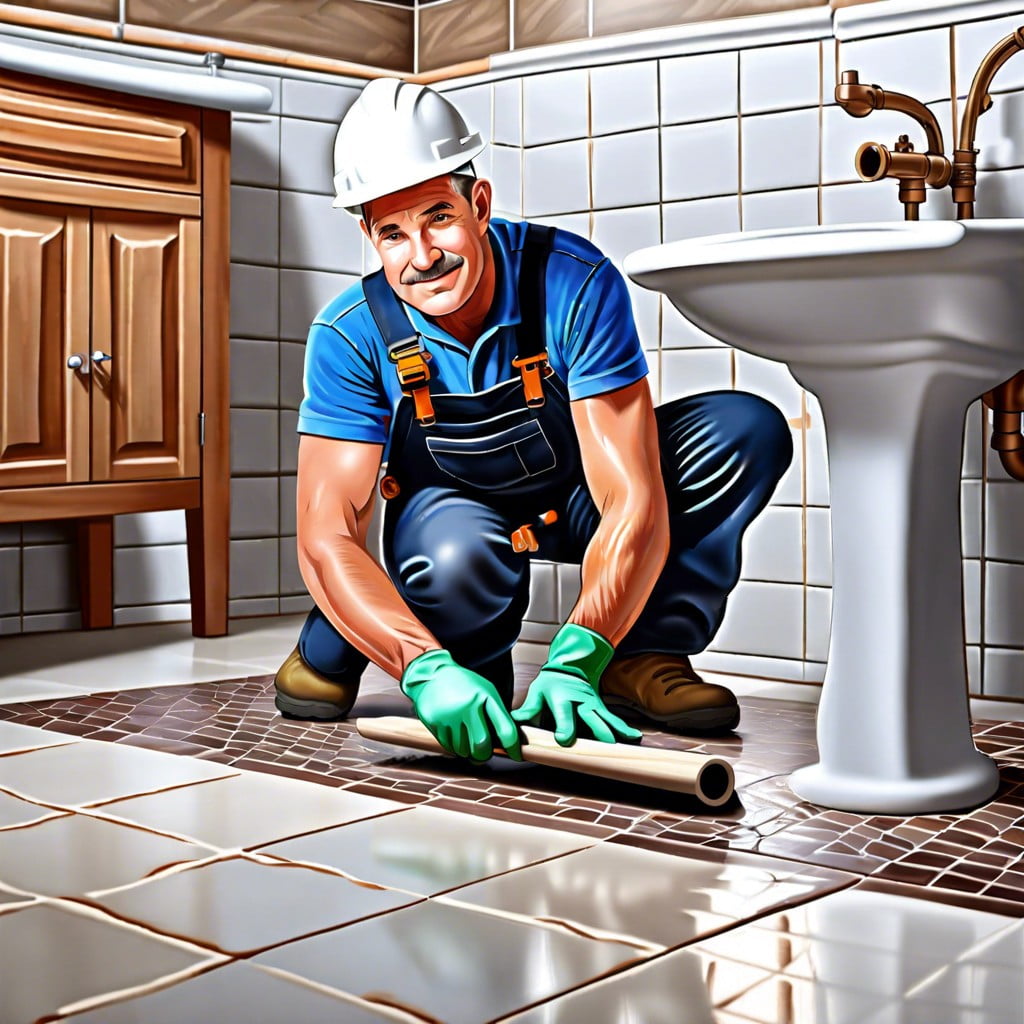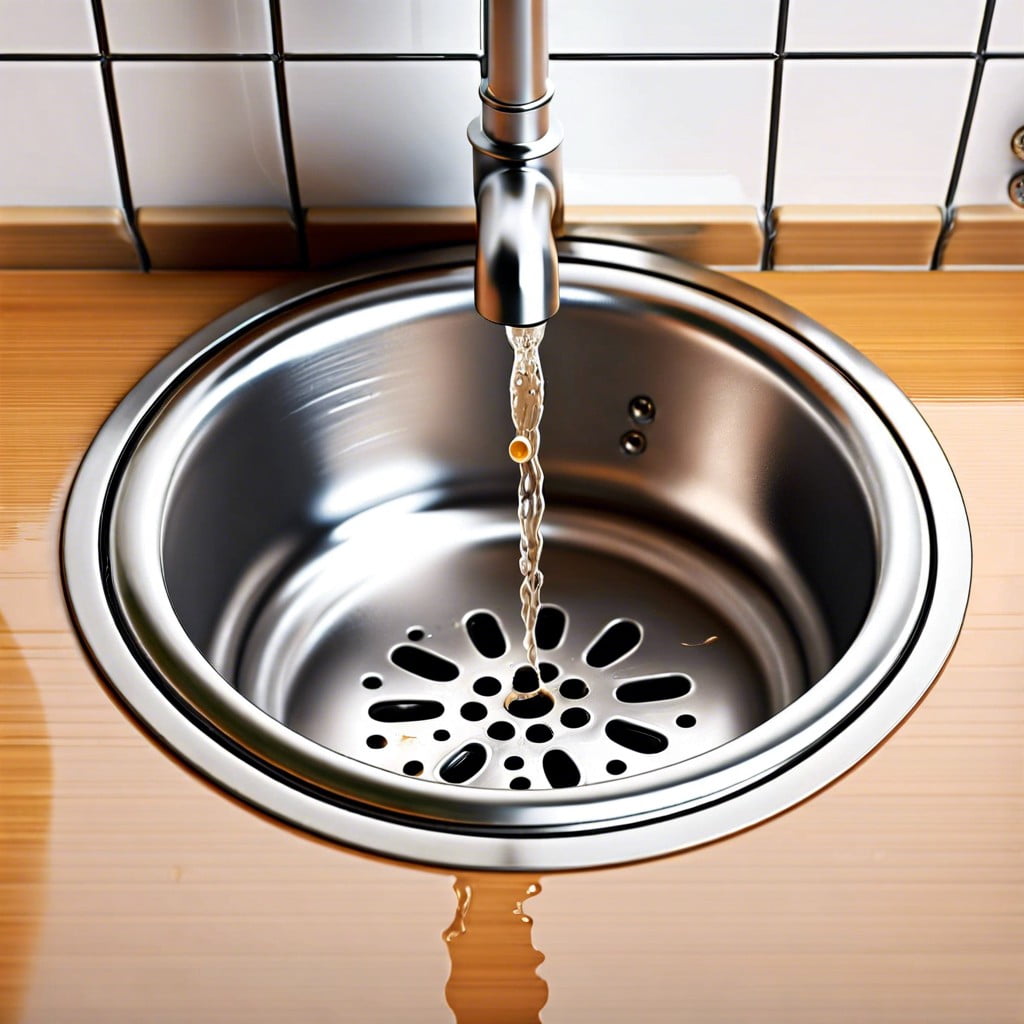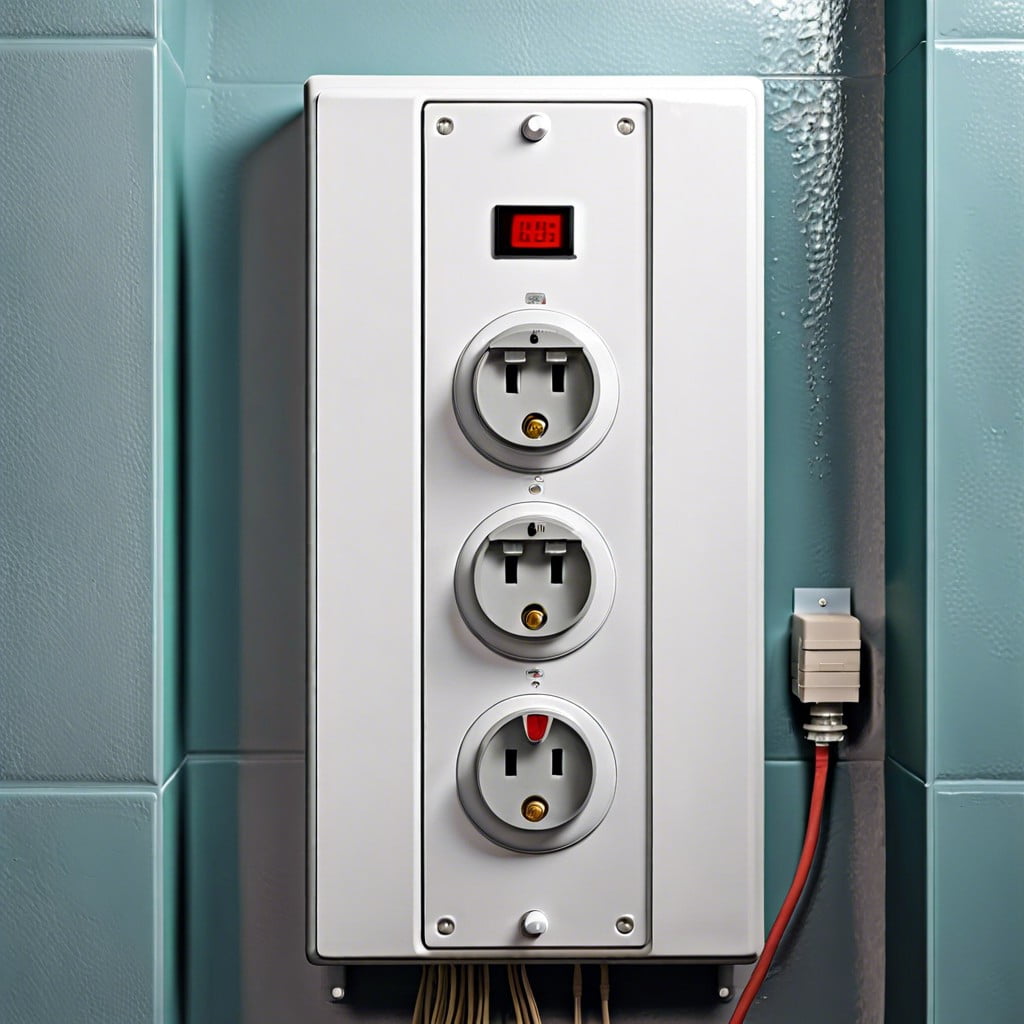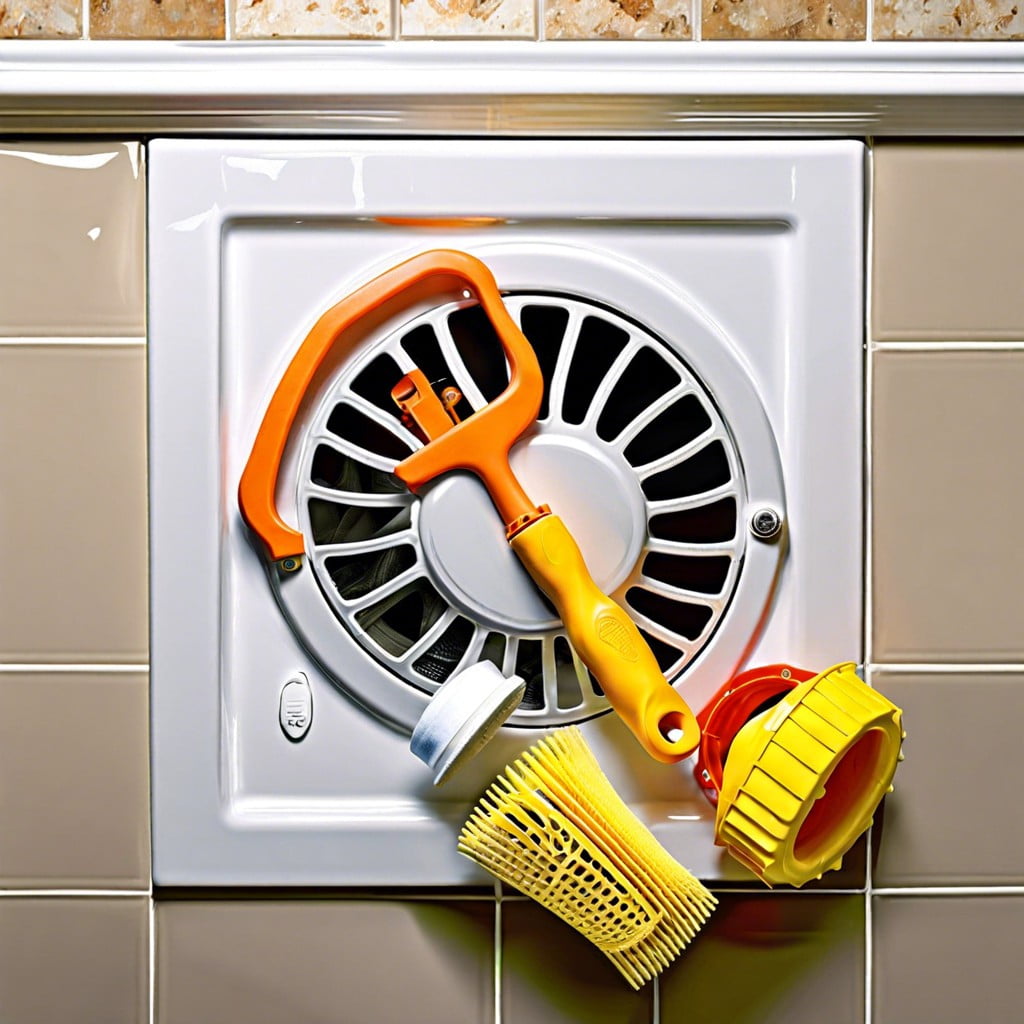Last updated on
If your home smells like a science experiment gone wrong, you’re likely dealing with hydrogen sulfide, often the culprit behind that rotten egg odor.
Key takeaways:
- Rotten egg smell may come from drains, appliances, or well water.
- Rotten egg smell could indicate a natural gas leak, take immediate action.
- Ventilate, clean drains, and consider water filtration for remedies.
- Regular maintenance and filter changes help prevent future smells.
- Consult a professional if smell persists or there are safety concerns.
Identifying the Source of the Rotten Egg Smell

The mystery of the rotten egg smell in your home often boils down to hydrogen sulfide gas. This pesky intruder can escape from several sources.
First, check your drains and water sources. Unused or dry pipes can become a playground for bacteria that produce hydrogen sulfide gas. Pouring water down seldom-used drains might quickly solve the problem.
Next, consider your appliances. An aging water heater can be a culprit, as sediment buildup promotes sulfur bacteria growth.
Lastly, your well system could be the source if you live rurally. Well water can naturally contain higher levels of sulfur.
Identifying the villain in the smelly saga of your home requires a bit of detective work, but by investigating these common areas, you’re likely to find the culprit swiftly.
Natural Gas Leak Warning
Certainly, the distinct smell often associated with “rotten eggs” in your house might be a sign that you’re dealing with a natural gas leak. Before you shrug it off as just another curious scent, consider that gas companies add a harmless, but pungent, chemical called mercaptan to natural gas, which is ordinarily odorless, to make it detectable.
So, if you catch a whiff of this infamous rotten egg odor, it’s crucial to take immediate action. First, don’t flip any switches or ignite anything that could cause a spark. Second, open up windows to help disperse the gas more quickly, but remember, this doesn’t solve the leakage issue. Crucially, evacuate the area and, from a safe distance, call in the professionals or your gas company to come and check out the situation.
Taking these steps isn’t just for peace of mind but a necessary measure to ensure safety. Natural gas leaks can escalate from a smelly nuisance to a significant hazard in no time. So, when your house gives you a sign, don’t just sit there—act wisely and swiftly!
Remedies for the Rotten Egg Smell
First things first: ventilate, ventilate, ventilate! Open all windows and doors to chase out that pesky sulfur stench. This not only dilutes the odor but also reduces potential health risks associated with gas accumulation.
Next, inspect and clean your drains and sink overflows. Often, trapped hair and debris can be the ideal hosts for bacteria producing hydrogen sulfide gas—yes, the rotten egg culprit. A good old-fashioned baking soda and vinegar mix can work wonders here. Pour it down the drain, let it foam a battle against the grime for a few minutes, then flush with hot water.
If those home remedies don’t do the trick, consider upgrading your water filtration system. Adding activated carbon filters can reduce sulfur smells by capturing gas particles before they ever make it to your nose.
Lastly, check your water heater. An aging water heater with a deteriorated anode rod can release hydrogen sulfide gas. Replacing the rod can often solve the problem, restoring peace and a more pleasant air to your domain.
Each strategy is a step toward reclaiming your home from the grips of that ghastly egg-stench.
Preventative Measures to Avoid Future Smells
Consistent maintenance is your best friend. Regular check-ups on your home’s plumbing system can catch issues before they turn your nose up. Focus especially on areas around drains and where pipes may be old or damaged.
Change is good, especially when it comes to filters. Water and HVAC filters should be replaced according to manufacturer’s recommendations. This not only improves air and water quality but also helps eliminate odors before they start.
Mind the vents, as blocked vents can cause a build-up of gases that might mimic that dreaded rotten egg smell.
Watch what you flush! Avoid dumping oil, food waste, or chemicals down your drains. These can decompose and produce sulfurous smells, not to mention clog your system.
Lastly, keep a keen nose. Early detection of unusual smells can lead to quicker actions and solutions.
When to Consult a Professional
If the smell persists even after trying all DIY remedies, it’s time to bring in the cavalry: a professional. Here’s when to pick up the phone:
– Continued Presence: If that stubborn odor refuses to leave after applying your fixes, it’s possible the issue is more complex than initially thought.
– Multiple Locations: Finding the smell in multiple areas can signify a larger issue, possibly related to the sewage line or your building’s foundation.
– Safety Concerns: Any suspicion of a gas leak should have you dialing for professional help immediately. It’s always better to be safe than sorry, especially when dealing with potentially hazardous gases.
Calling in an expert can not only provide peace of mind but also ensure your home environment is safe and sound. A stitch in time saves nine, or in this case, saves from a possibly stinky situation becoming a downright hazard!
Recap
